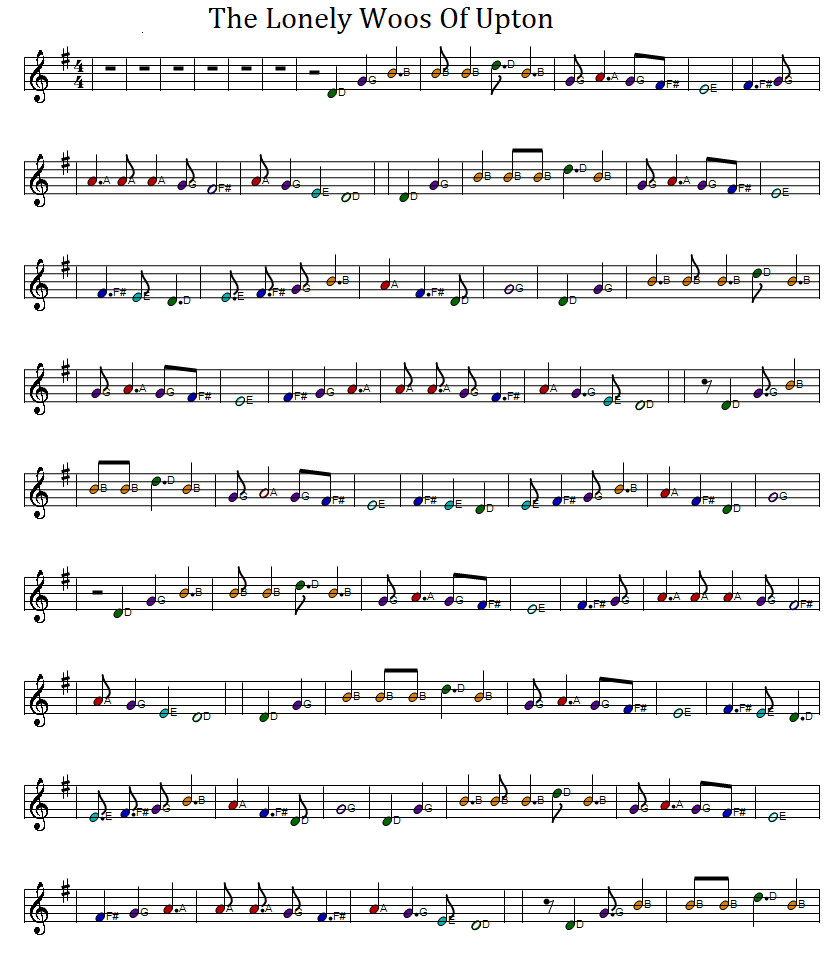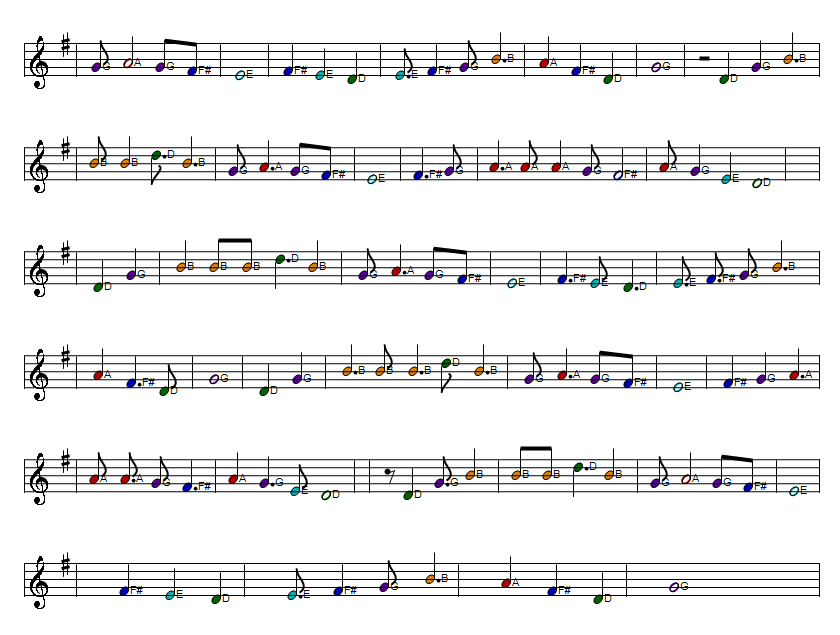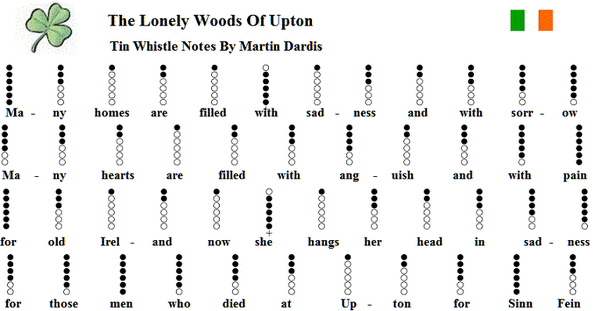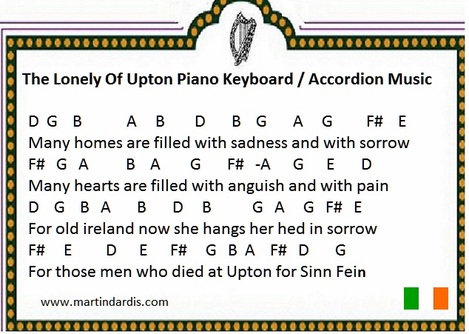The Lonely Woods Of Upton Tin Whistle Music Notes
Also Suitable for piano keyboard, accordion. The sheet music at the bottom of the page uses notes that are a little different than the tin whistle version. The first version showing the full sheet music with the letter notes is slightly different than the tin whistle version below it.
The sheet music below uses slightly different notes than the other version.





